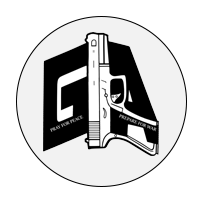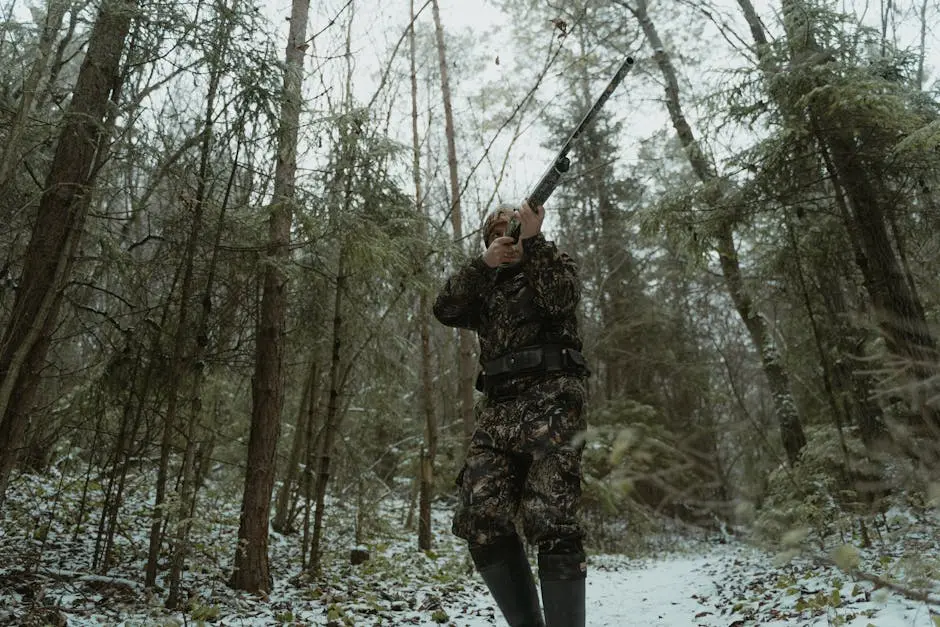Choosing the right caliber for a beginner hunting rifle can be quite daunting, especially with so many options available. This guide will help simplify the decision-making process by breaking down the most important factors to consider for novice hunters.
Understanding Caliber Basics
Before selecting a caliber, it’s crucial to understand what caliber means and how it influences the performance of a rifle. This section will provide a brief overview of caliber dimensions and their impact on shooting.
Factors to Consider for Beginners
New hunters should consider key factors such as recoil, availability, cost, and the versatility of the caliber. This helps in narrowing down the suitable calibers for a beginner.
For a beginner, managing recoil is often a primary concern. Calibers like the .243 Winchester are known for their manageable recoil, making them ideal for new hunters aiming to maintain accuracy without fear of the gun’s kick. This aspect is vital not just for comfort but also for building confidence and shooting skills.
Availability and cost of ammunition are practical considerations. Calibers like the .223 Remington are widely available and generally less expensive, making it easier for newcomers to practice frequently without breaking the bank. This caliber is also versatile, suitable for small to medium-sized game, thus offering a good introduction to different hunting scenarios.
An essential yet often overlooked factor is versatility. A caliber that allows for various uses is invaluable to beginners who might want to explore different types of game hunting. Choosing a popular caliber ensures adaptability across hunting and shooting experiences, allowing significant learning opportunities without the need for multiple firearms.
Top Caliber Recommendations
Some calibers are particularly well-suited for beginners. This section will outline a few popular options, like .243 Winchester and .223 Remington, explaining their benefits and ideal uses.
The .243 Winchester is often recommended for its versatility and mild recoil. It’s suitable for hunting deer and can handle small to medium game effectively. Many hunters appreciate this caliber’s flat trajectory, making it easier to remain accurate over extended distances — a crucial feature for novices still honing their skills.
The .223 Remington, another excellent starter caliber, is prized for its utility in both target shooting and small-game hunting. It’s lightweight, relatively affordable, and an excellent way to advance your shooting techniques while accommodating a wide range of game. With proper bullet selection, it can even be used for occasional deer hunting — provided local regulations permit.
An external resource, such as the article Becoming a One-Rifle-Hunter, supports the idea of versatility with specific calibers. For beginners, such a recommendation aligns with the principle of selecting a do-it-all caliber suitable for various hunting situations.
Choosing Based on Game Type
The type of game you plan on hunting plays a significant role in caliber selection. Here, we’ll discuss what to consider when choosing a caliber based on whether you’re hunting small game, deer, or larger animals.
If small game like rabbits or varmints is your target, lighter calibers such as the .22 LR or .223 Remington provide a suitable and effective choice, offering minimal recoil and precise shooting capabilities. These calibers help beginners focus on accuracy and learning the basics of hunting skills without the distraction of heavy recoil.
For medium game, like deer, calibers like the .243 Winchester or the slightly more powerful .270 Winchester are excellent starting points. Both provide the power to ethically take down medium-sized game while still being manageable for a beginner. They offer the hunter an opportunity to learn and shoot over longer distances with confidence.
Focusing on larger game requires a bit more power. Larger calibers such as the .30-06 Springfield can be considered for beginners who aim to venture into bigger game hunting. While it has more recoil, its versatility and effectiveness across various species make it an option worth considering as hunters grow in skill and experience.
Consulting resources like Firearms For Waterfowl Hunting can offer more specific insights into choosing weapons based on specific game, emphasizing the importance of selecting the right caliber for your targeted game type.
Practical Tips for Beginner Hunters
Beyond picking the right caliber, there are several practical tips novice hunters can follow to enhance their hunting experience, such as practicing regularly and joining hunting communities.
Regular practice at a shooting range helps beginners become familiar with their rifle’s handling and improves accuracy. Many hunters recommend dry firing at home—a safe practice void of ammunition—to aid muscle memory development and firearm mastery over time.
Joining a local hunting club or online community can be immensely beneficial. These platforms serve as excellent resources for learning, asking questions, and sharing experiences with more seasoned hunters. Organizations like Green Line Arms provide essential gear and expert tips, ensuring that your initiation into hunting is informed and well-equipped.
Ethical hunting is paramount as beginners develop their habits and skills. Following local hunting laws, understanding the importance of conservation, and respecting land, wildlife, and fellow hunters embody the responsibilities of a respectable hunter.
Final Thoughts on Choosing the Right Caliber
Selecting the best caliber for a beginner hunting rifle depends on several factors, including the type of game, recoil preferences, and budget. By understanding these elements, you can make an informed decision that ensures a safe and enjoyable hunting experience.


